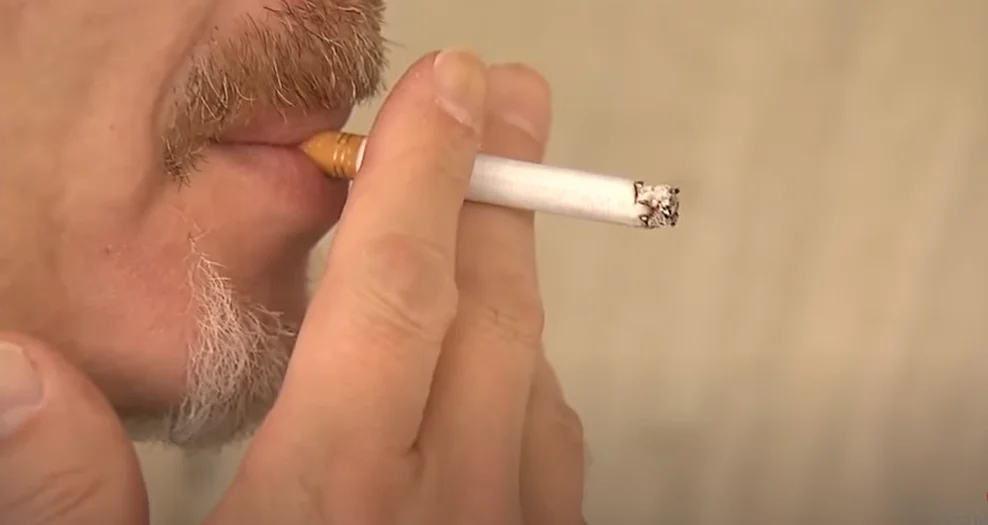Quitting smoking is one of the best decisions you can make for your health. It significantly reduces your risk of cancer, heart disease, stroke, and other chronic illnesses. But let’s be honest, kicking the habit is tough. Cravings can be intense, and the hand-to-mouth motion and familiar routine can be tempting.
While there’s no magic bullet for quitting smoking, incorporating certain foods into your diet can be a helpful strategy. These foods can:
- Reduce cravings: Some foods contain nutrients that may help lessen your desire for a cigarette.
- Improve your mood: Quitting can lead to irritability and anxiety. Certain foods can boost your mood and energy levels.
- Support your body’s detoxification: Smoking depletes your body of essential nutrients. Specific foods can help replenish these and aid your body’s natural cleansing process.
- Keep your mouth occupied: Chewing on healthy snacks can mimic the hand-to-mouth motion of smoking and distract you from cravings.
Here’s a breakdown of some key food groups and specific options to consider when trying to quit smoking:
-
Fruits and Vegetables: A Rainbow of Antioxidants
Load up on antioxidants: Smoking creates free radicals in your body, which damage cells and contribute to disease. Fruits and vegetables are rich in antioxidants that help combat these free radicals. Aim for a variety of colors to get a full spectrum of antioxidant benefits.
- Berries: Blueberries, strawberries, raspberries are all packed with antioxidants.
- Citrus fruits: Oranges, grapefruits, and lemons are high in vitamin C, which can help with detoxification.
- Leafy greens: Kale, spinach, and Swiss chard are excellent sources of vitamins, minerals, and antioxidants.
- Cruciferous vegetables: Broccoli, cauliflower, and Brussels sprouts may help boost your body’s natural enzymes that aid in detoxification.
- Carrots: Beta-carotene in carrots is a powerful antioxidant.
2.Lean Protein: Keeping You Feeling Full and Satisfied
Protein helps manage cravings: Protein keeps you feeling fuller for longer, which can help reduce cravings for cigarettes. Choose lean protein sources to avoid adding unhealthy fats to your diet.
- Fatty fish: Salmon, tuna, and mackerel are rich in omega-3 fatty acids, which can improve mood and cognitive function. They may also help reduce inflammation associated with smoking.
- Chicken and turkey breast: These are excellent sources of lean protein and easy to incorporate into various meals.
- Beans and lentils: A vegetarian option providing protein and fiber, which keeps you feeling full.
-
Whole Grains: A Source of Long-lasting Energy
Stable blood sugar: Refined carbohydrates can cause blood sugar spikes and crashes, which can trigger cravings. Choose whole grains that release energy slowly, keeping you feeling steady.
- Brown rice: A complex carbohydrate that provides sustained energy.
- Quinoa: A complete protein source with a nutty flavor, perfect for salads or bowls.
- Whole-wheat bread and pasta: Opt for whole-wheat versions of your favorite bread and pasta dishes.
-
Healthy Fats: Friends, Not Foes
Don’t be afraid of healthy fats: While avoiding saturated and trans fats is important, healthy fats from nuts, seeds, and avocados can actually help reduce cravings. They also provide essential nutrients and promote feelings of fullness.
- Nuts and seeds: Almonds, walnuts, flaxseeds, and pumpkin seeds are all excellent sources of healthy fats, protein, and fiber.
- Avocados: Avocados are a creamy source of healthy fats, fiber, and vitamins.
-
Dairy: A Case-by-Case Basis
Mixed research on dairy: Some studies suggest that dairy products like milk and cheese can make cigarettes taste worse, potentially deterring smoking. However, this effect isn’t consistent for everyone. If you find dairy helps, incorporate it into your diet.
Bonus Tip: Stay Hydrated
Water is key: Dehydration can sometimes be misinterpreted as a craving. Drinking plenty of water throughout the day keeps you hydrated and helps your body function optimally.
Remember, these foods are just one piece of the puzzle. Here are some additional strategies to support your quit journey:
- Seek support: Talk to your doctor about quitting smoking programs or medications that can help. Consider joining a support group to connect with others who understand your struggle.
- Identify your triggers: What situations make you crave a cigarette? Develop coping mechanisms to deal with those triggers without smoking.
- Find healthy alternatives: Replace smoking with healthy activities like exercise, spending time in nature, or listening to music.
Reward yourself
Reward yourself: Quitting smoking is a significant accomplishment! Celebrate your progress by rewarding yourself with non-smoking related activities. Here are some ideas:
Take a weekend getaway, indulge in a massage or spa treatment, or go to a concert or sporting event.
Here are some additional resources that can be helpful on your quit journey:
The Centers for Disease Control and Prevention
Remember, you’re not alone in this. There’s a whole community of people cheering you on!




